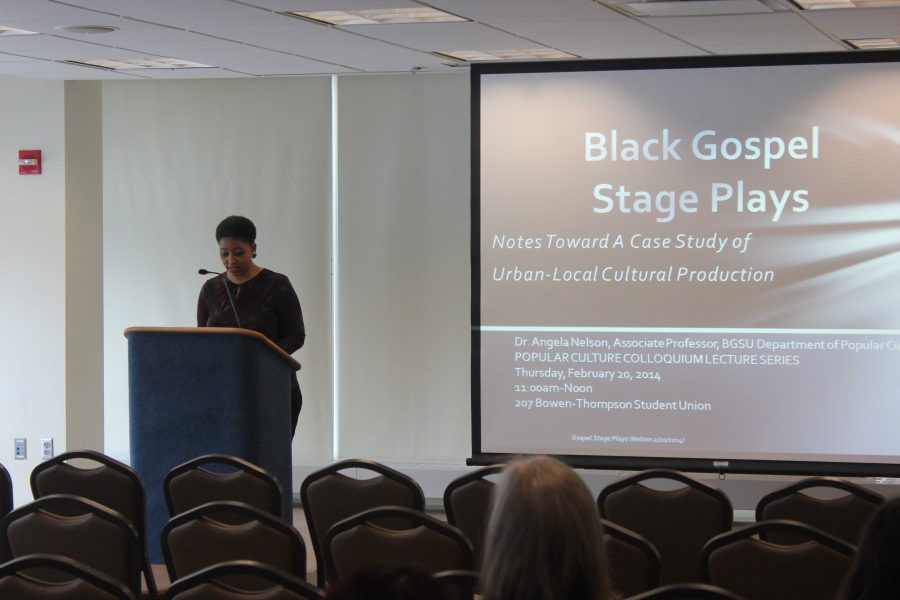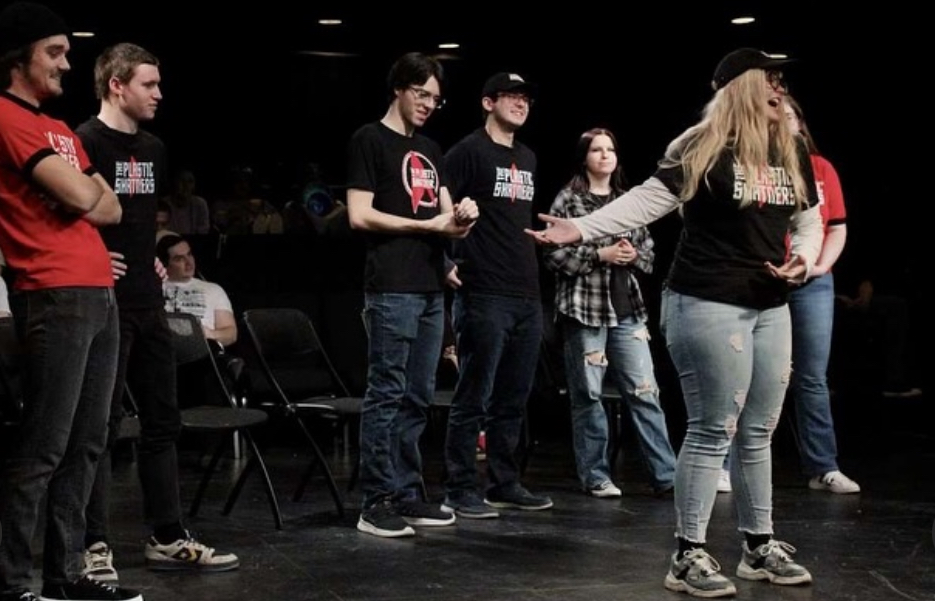All music has a heartbeat.
Gospel stage plays have a heartbeat, like rap and hip-hop, but are in a totally different arena.
Angela Nelson, assistant professor in the University’s Pop Culture Department, gave a lecture as part of the Pop Culture Colloquium Lecture Series on Thursday. Her lecture was titled “Black Gospel Stage Plays: Notes Toward a Case Study of Urban-Local Cultural Production.”
Nelson talked about three specific gospel stage plays, “In the Midst of it All”, “Madea’s Family Reunion” and “Madea Goes to Jail.” She said gospel stage plays are a product of old religious folk dramas like “Heavenbound”, “In the Rapture” and “Old Ship of Zion.”
“Folk dramas and today’s gospel stage plays both have music, morality and evangelism,” Nelson said.
It’s a tradition in the African American church for musicians to have no music in front of them. They just play what they feel comes next, she said.
“Some people call these gospel musical stage plays,” Nelson said. “But of course music is going to be included.”
Both folk dramas and gospel stage plays also have morality. Folk dramas used Heaven and Hell and characters who represent both. Today’s gospel plays have less blatant distinctions and instead use “ministry” to spread the good news.
“Playwrites see their plays as being from God, to God and for God,” said Nelson. “Gospel stage plays are good news in bad times.”
Gospel stage plays usually have an interesting ending, which deals with evangelism.
“At the end, there is an opportunity to give your life to Jesus,” Nelson said. “There is always an answer and we know that answer. That answer is Jesus.”
She said these plays are contemporary and ask questions like “How do we take this good news and apply it to life?” and “How do you act like a Christian in this circumstance?”
Nelson also said she wanted to learn more about the demographic of the people who make up and also attend these plays.
“Locally, most playwrites are female,” Nelson said. “I want to interview and ask them why that is.”
Nelson also mentioned the key demographic of these plays are predominately black female Christians. She talked about spheres of production and how some artists like Tyler Perry have tried to make their plays more acceptable by turning them into films.
“The integrity of the play and the closeness of characters is lost when they are in film,” Nelson said.
Nelson said this topic interests her because she sees herself in these plays.
“It’s African American culture, Christian culture, music and pop culture in general,” Nelson said. “This combines all of those things that intersect in my life.”
This was a topic that interested others as well. Popular culture graduate student, Amy Stroh went to support the department.
“I did research on this in my undergrad,” Stroh said.
Jacob Brown, also a popular culture graduate student, attended.
“I go to get a new perspective and learn and new and interesting things,” Brown said.














